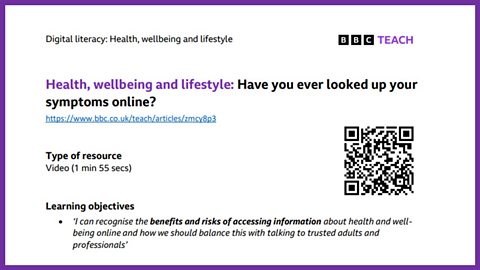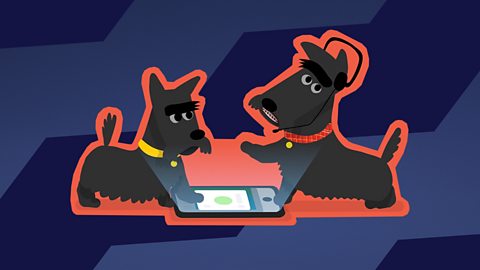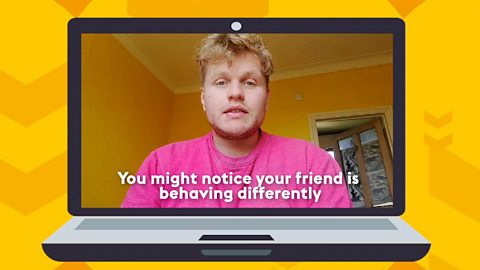Video summary
Note: Check with your school policies regarding the discussion of puberty.
This animation follows Ainslie the dog as he anxiously explains to his brother that he has got a rare and serious condition. It started with a ŌĆśsqueaky voiceŌĆÖ. When asked how he was diagnosed he says he has searched online and found all his symptoms.
He describes lots of other symptoms he may have and is panicking about how ill he thinks he must be. His brother explains that he is going through puberty, and it is totally normal, and that he went through it himself. The article recommends talking to a trusted adult about how you are feeling rather than searching online.
Video: 1min 55 secs
Learning objectives
(from the set out by the UK Council for Internet Safety)
- ŌĆśI can recognise the benefits and risks of accessing information about health and well-being online and how we should balance this with talking to trusted adults and professionalsŌĆÖ.
Glossary
- Symptoms: a physical or mental feeling or experience that might be part of an illness or condition
- Search engine: An online tool that catalogues websites and can search them using keywords
- Diagnosed: The process of identifying an illness or disease using tests and examinations by an expert
- Hypochondriac: Someone who worries a lot about their health and becoming unwell
- Puberty: The physical changes that young humans go through as they grow into an adult
- Reliable: Someone or something that can be trusted to be correct, to work well or to behave as expected
Topic introductions and starters
Before the video:
- Ask pupils to write down their current understanding of the key phrases and words from the glossary - either independently or in pairs with discussion.
After the video:
- Check new understanding of the key vocabulary and correct any misconceptions
- Re-watch the video and identify all the symptoms that Ainslie describes ŌĆō make a list
- Discuss the pros and cons of searching for health information online ŌĆō make a list of both
- Revise previous learning about how to check online information and how it is not always reliable or accurate
- Make a list of reasons that someone might put inaccurate or misleading information online
Discussion Points
What is wrong with searching for information about symptoms? Does internet has all the answers? Do doctors know everything?
Why wonŌĆÖt family my discuss things like this with me? Is always a good idea to do your own research online? More information is always betterŌĆ” You can trust online informationŌĆ” But the information is on a medical website so it must be OK
Is it better to keep your feelings and symptoms private? Why might you keep it private? Because youŌĆÖre embarrased to tell anyone? Why might it be a good idea to tell someone you trust or a doctor? If I search for my symptoms, IŌĆÖll feel better knowing itŌĆÖs not seriousŌĆ” But what if what you find online makes it sound serious when itŌĆÖs not? You might feel anxious and more unwell?
Role Play Role play talking to a friend about something that is worrying them ŌĆō provide scenario cards to avoid personal details.
Fillers and fast finisher activities
- Make a top tips style list of ways to get help if you are feeling unwell or unhappy
- Make a list of reasons why the World Wide Web does not make a good doctor
- Create an acrostic poem or article using RELIABLE as the first letters of each line
- Make a warning poster about ŌĆśDr InternetŌĆÖ ŌĆō create a cartoon villain who wants to give you unreliable information and a cartoon hero that wants you to tell an adult or talk to a doctor.
Signposting potential homework activities
- Watch the video with friends and family and discuss the content ŌĆō have they ever experienced a similar situation or searched for their own symptoms online?
- Make a leaflet about the problems of using the Internet to search for symptoms from a doctorŌĆÖs point of view
- Expand the cartoon characters from the previous section into a cartoon strip.
For download/printing

More on: Health wellbeing and lifestyle
Spending money online. video
An animation about Ainslie the dog, who accidentally spends money during his live vlog.

How to tell if your friend needs help. video
Ollie Glick from Children and Young PeopleŌĆÖs Mental Health CoalitionŌĆÖs gives his advice on what to do if you think your friend needs some help and support.

The five ways to wellbeing. video
Five ways that you can look after your mental health and wellbeing.
